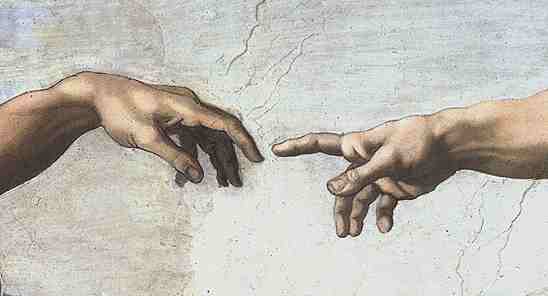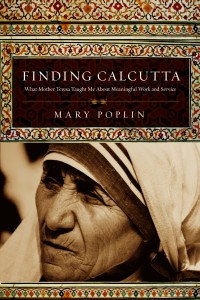
Questions for consideration:
- How do we identify and describe the various aspects of our Christian calling?
- What is the difference between the Christian understanding of calling to the popular secular use of the term?
Introduction – Naming as part of our calling
Kevin,who facilitated the class from which these notes are adapted (more below), and his wife named their boys in a manner to reflect their desires for them. The names also carried elements of who they were as parents — traditional, respectable, with a bit of an Irish/Welch heritage 🙂
- Christopher David – “of Christ” and “beloved”
- Andrew Sean – name of the disciple who led others to Christ; Kevin’s spouse liked “Sean.”
- Kevin and his wife were/are the “callers”
- Their sons were/are those who were/are “called”
What is the meaning of your name? Why was it chosen? What were/are the desires of your parents for your life? Have you thought about their significance on your self-understanding and vocational direction?
Other examples of naming:
- Retreat locations (e.g., InterVarsity Christian Fellowship’s Toah Nipi, which means “wide waters”*), cabins, or cottages – calling is more than just naming. Those named are expected to act on “the call.”
- We are children who imitate God – Adam named the creatures (Genesis 2:19-20).
- When one becomes a Christian, one becomes a follower of the Way (John 14:6).
Facets of our Calling by God
The Caller (Exodus 3:13-15)
- In calling Israel, God revealed himself to Moses at the burning bush and to the Israelites through Moses and later at Mount Sinai.
- God is the Caller. He calls us out, sets apart, for Him, for His purposes.
Being created; being named (Psalm 139:13-17)
- Leaves no doubt as to our uniqueness and single identity before God.
- The rich use of names and titles in scripture to describe Jesus illustrate His calling, His place. Joseph was told by the angel to call Him Jesus (Matthew 1:20-21). Other familiar names
- Son of God,
- Son of Man
- Son of David
- Immanuel
- Messiah
- Lord, Master (e.g., Luke 8:24, Luke 8:45, Luke 9:33, Luke 9:49)
- Teacher (Matthew 9:11, Matthew 13:52, Matthew 22:36)/Rabbi
God’s calling of each of us to faith (Matthew 4:18-20, Matthew 16:23-26, Romans 1:1-3)
- What we do vocationally doesn’t limit God. In fact, you might turn this around and say He is honored by humble work. The disciples as fishermen; Paul a tentmaker.
- The disciples’ response is stunning. To paraphrase from what was noted later in Scripture, “Lord we have left everything and followed you” (Matthew 19:27).
- Calling has cost. Our service, indeed our lives, are expected. Taking up our cross is synonymous with following Christ.
- We are set apart in the calling. God’s mark is on us and is evident through our actions.
- God’s calling is transformative. This is true with Paul, a fervent Jew who persecuted the followers of the Way.
- The cultures of believers are transformed.
- Mother Teresa’s India. Mother Teresa intentionally avoided forcing characteristics of our Western culture on other cultures through the Gospel. However, Christianity transforms culture.
Missionaries have written books illuminating the errors of transmitting characteristics of one culture to another when sharing the gospel. That was what Mother Teresa did not want to do with her order; she wanted Indian girls to be able to serve Christ in the context of their culture and not have to act like Europeans. Christ desires that cultures change. Unhealthy things exist in the world. Theologian Lesslie Newbigin writes, “there can never be a culture-free gospel. Yet the gospel . . . calls into question all cultures including the one in which it was originally embodied.”
Though the gospel challenges all cultures, the variety of cultures also expresses God’s diversity. Each has gifts to contribute to the world. Like different denominations, cultures highlight or reveal unique aspects of the gospel. However, unlike what popular Western culture promotes, not all diversity is desireable. ot every cell in a body is healthy or helpful; some are diseased. We must learn to discern based on principles and precepts of God. All races, all classes, all cultures and all nations contain people and traditions what are healthy and unhealthy, good and evil, life-giving and life-destroying. Each of us contains both the healthy and unhealthy as well (Mary Poplin. Finding Calcutta: What Mother Teresa Taught Me About Meaningful Work and Service. InterVarsity Press. 2008,141).
A benediction to those who have been called to follow
Investigate my life, O God, find out everything about me; Cross-examine and test me, get a clear picture of what I’m about; See for yourself whether I’ve done anything wrong — then guide me on the road to eternal life — Psalm 139:23-24, the Message.
Next Post in Series: Finding Calcutta: Find yourself in doing, not criticizing
*Toah Nipi, which means “wide waters” in the Alqonquin language, is a place set apart for retreat, reflection, recreations, and rejuvenation. According to the website (and my family’s experience as part of the Northeast Region of InterVarsity’s Graduate & Faculty Ministry), groups find comfortable accommodations, excellent food, a 30-acre spring fed lake, and 290 acres of natural beauty to play or pray in at Toah Nipi. To God be the glory!

Note: Genesis of the series: You’ll notice the influence of Head, Heart & Hands, Os Guiness’ “The Call: Finding and Fulfilling the Central Purpose of Your Life,” and “Why Christian Apologetics?”** As with the Head, Heart & Hands series, the material is drawn from an adult elective at Elizabethtown Brethren in Christ Church (EBIC) facilitated by Kevin Milligan in coordination with the author speaking for our Christian Scholar Series (an EBIC-ESN partnership). In Spring 2011, Mary Poplin spoke in Pittsburgh, South Central PA, and Baltimore as part of an ESN partnership with Undergraduate Ministry and Graduate & Faculty Ministry. To God be the glory!
**To skim or not to skim: A ‘case’ study of “Christian Apologetics” and Why Christian Apologetics – Hell on Christian Apologetics: A Comprehensive Case for the Biblical Faith (IVP. 2011). More posts on topic coming.
Updated: 11/2/2011. 11:23 AM.
Tom enjoys daily conversations regarding living out the Biblical Story with his wife Theresa and their four girls, around the block, at Elizabethtown Brethren in Christ Church (where he teaches adult electives and co-leads a small group), among healthcare professionals as the Northeast Regional Director for the Christian Medical & Dental Associations (CMDA), and in higher ed as a volunteer with the Emerging Scholars Network (ESN). For a number of years, the Christian Medical Society / CMDA at Penn State College of Medicine was the hub of his ministry with CMDA. Note: Tom served with InterVarsity Christian Fellowship / USA for 20+ years, including 6+ years as the Associate Director of ESN. He has written for the ESN blog from its launch in August 2008. He has studied Biology (B.S.), Higher Education (M.A.), Spiritual Direction (Certificate), Spiritual Formation (M.A.R.), Ministry to Emerging Generations (D.Min.). To God be the glory!

Leave a Reply